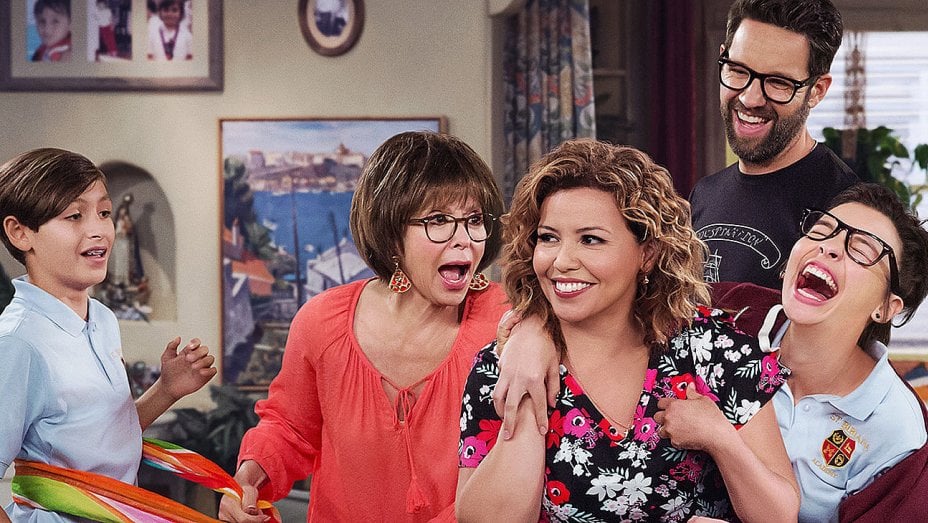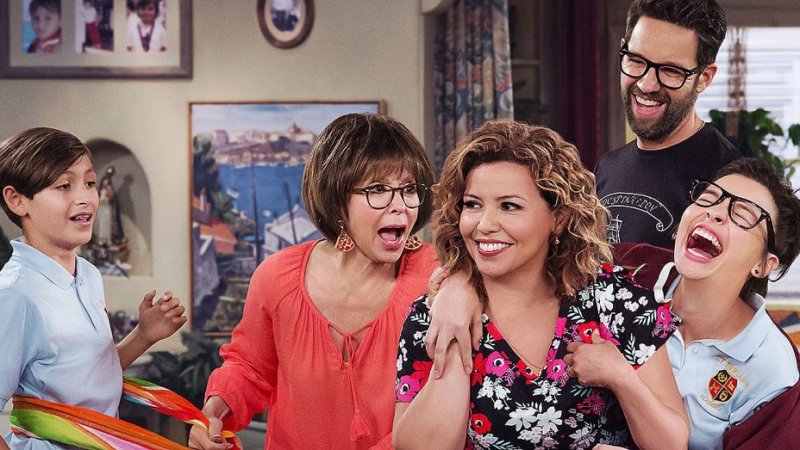
Note: spoilers ahead.
“One Day at a Time” is everything that is should be. It is a multicam comedy — a once-booming format from “I Love Lucy” to “Friends” that is now quickly phasing out. Even with all the odds against the dying format, the show proves that maybe audiences should give sitcoms a second chance. The new Netflix reboot of a classic 1975 sitcom takes two to three episodes to settle in, but considering other popular shows take multiple seasons before finding their groove, “One Day” does a fantastic job.
The first couple episodes feel forced in their humor when trying to address too many issues at once, forcing laughs out of clichéd one-liners and unnecessary plot points. But once “One Day” starts taking advantage of the Netflix 30-minute format, it hits the sitcom genre right on the nose. Traditional television sitcoms are 20 minutes long, which allows for only a small bit of plot development. The additional ten minutes allow for the conflict to stray from the surface-level first-world problems, bickering and relationship issues that are commonly found in sitcoms. The “One Day” writers successfully use those extra minutes to tackle hard-hitting subjects, including stigma surrounding antidepressants, therapy, issues with the VA, undocumented immigrants, mansplaining, the wage gap and sexist microaggressions.
Most notably, the standard white sitcom family in the original series is replaced by the Alvarez family, who is 100 percent Cuban and 100 percent proud of it. There’s no subtle skirting around the fact that they’re “just Latino” or that they’re “of Cuban descent” — so many valuable storylines come from the fact that the family’s culture and heritage are rooted in Cuba. Like Lucille Soong in the role of Grandma Huang on ABC’s “Fresh Off the Boat,” the legendary Rita Moreno brings such life to the playful, eccentric Cuban grandmother Lydia (“Abuelita”). Elena, the Alvarez daughter, struggles against the systemic patriarchal aspects of having a quinceañera while still wishing to uphold the traditional celebration for her family. And Penelope Alvarez, a now-single mother and army vet who served in Afghanistan, wants to raise her kids to take pride in their Cuban heritage but also have a better life than she and her mother, Lydia, had.
The strongest storyline is that of Elena — she’s cool and confident as well as a self-proclaimed feminist against bureaucracy, aristocracy and social confines. As an intelligent, somewhat nerdy teenager with a penchant for long sentences, dislike for makeup and fashion that is typically considered “feminine,” and the self-proclaimed black sheep of the family, Elena explores how she feels and what she believes in. After admitting to her younger brother, Alex, that she’s not sure if she likes boys, she undergoes her own social experiment, briefly dating someone who is popular, sweet, handsome and a “gentleman.” When Penelope finds out that she’s been watching porn, however, Elena finally admits that she feels more when she looks at a picture of Kristen Stewart then she does when she kisses her boyfriend, coming out ever so eloquently to her mother as they embrace.
Yet somehow, “One Day” is able to take on so much more than that. Elena’s coming out story is not just her own — it becomes Penelope’s story, too. Despite the fact that Penelope wishes to be open-minded, she struggles with Elena’s admission to her. The remaining episodes after Elena’s revelation explore Penelope’s unshakeable feeling of discomfort, even though she continues to love her daughter just as much as she did before. In this manner, “One Day” explores both the child’s and the parent’s experience of coming out, a relationship which is rarely discussed. After Penelope comes to understand that her relationship with her daughter will not change but simply will progress down a new path, their connection is happily restored. And still more, “One Day” can effortlessly throw in priceless, humorous double entendres in light of a serious topic with Abuelita, whom Elena is initially afraid to inform about her sexuality, as Lydia encourages Elena to work on her posture for her quinceañera by standing up straight and being “as straight as she can.”
This 30-minute format can either be fitted well for a plot — as seen in the explicit, hysterical HBO show “Veep” starring Julia Louis-Dreyfus — or wasted — exhibit A: “Fuller House.” “One Day” quickly and efficiently overcame its struggle to balance tough, controversial topics with humor that everyone can enjoy. Comedy really is juxtaposition, and those little things thrown in here and there within those deep, emotional, heart-wrenching moments make “One Day” refreshing, subtly sweet and wonderful.
Season one of “One Day at a Time” is now on Netflix, and the show has been renewed for a second season.
Contact Olivia Popp at opopp ‘at’ stanford.edu.
